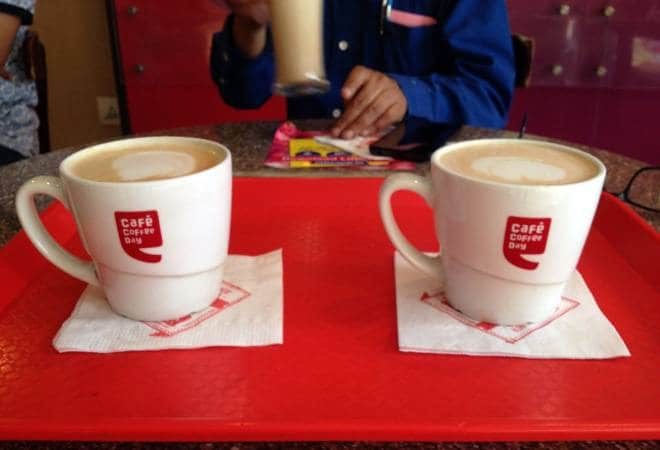

VG Siddhartha, the owner and founder of the largest coffee chain in India, Cafe Coffee Day (CCD), has mysteriously gone missing since Monday evening. Siddhartha, who is also the Chairman and Managing director of the Coffee Day Enterprise Limited (CDEL) – the holding company of all his companies- is the son-in-law of former Union Minister of Foreign Affairs and now BJP leader S.M. Krishna.
His sudden disappearance came as a surprise and caused a loss of over Rs 800 crore in the market capitalisation of the listed Coffee Day Enterprises. People who know him personally describe him as a courageous entrepreneur with an eye for good investments. In an alleged letter written (the company or the police authorities have not confirmed the authenticity of the letter) by Siddhartha – addressed to the board members of CDEL and ‘coffee day family’ – he blamed himself for having failed to create a profitable business model in spite of his best efforts. He further stated that a private equity investor was forcing him to buy back shares for a partial transaction carried out six months ago. He also faced pressure from other lenders and harassment by income tax officials.
However, a close look at the company’s financials gives a different picture even as Coffee Day Enterprises appears to be a company with a complex operating structure.
Financial health check
Coffee Day had come out with its initial public offering in 2015. In its IPO documents, it had mentioned to use the proceeds to service debt to the tune of Rs 6,328 crore. Since then, there have been consistent efforts to reduce the debt of the company. The company had revenues of Rs 4,624 crore and profits of Rs 128 crore at the end of financial year 2018-19. Coffee Day Global Limited (CDGL), a subsidiary that runs the retail business of CCD, clocked revenues of Rs 1,468 crore for FY19 against Rs 1355 crore in FY18.
SICAL Logistics, under which the group runs an integrated logistics solutions, reported revenues of Rs 1525 crore in FY19 against Rs 1194 crore in FY18. However, revenues of financial services portfolio saw a marginal decline from Rs 546 crore in FY18 to Rs 527 crore in FY19. The consolidated audited results of the company also showed a profit of Rs 147.23 crore in FY19 compared to Rs 148.27 in FY18 . FY19 balance sheet also shows current and non-current liabilities of the company totalling at Rs 3,577 crore. Interestingly, the independent auditors report prepared by B S R & Associates LLP and submitted to the board noted: “We did not audit the financial statements of forty subsidiaries included in the consolidated annual financial results, whose annual financial statements reflect total assets of Rs 12,140.16 crore as on 31 March 2019 as well as the total revenue of Rs 4,091.71 crore for the year ended 31 March 2019.” Auditors further observed, “The consolidated annual financial results also include the Group’s share of net profit (and other comprehensive income) of Rs 87.82 crore for the year ended 31 March 2019 in respect of two associates and two joint ventures which have not been audited by us.”
According to several reports, the Coffee Day was in talks with Coco-Cola to sell the retail coffee business in a bid to further reduce its debt.
Mindtree stake sale
After long negotiations spanning over 8-10 months, Siddhartha finally sold his stake of 20 per cent in Mindtree. In its filing to stock exchanges, Coffee Day informed that it had concluded the stake sale in Mindtree on May 3, 2019. The proceeds, after factoring in expenses and tax to the tune of Rs 2100 crore, was entirely utilised to reduce debt. Sources close to the matter informed BT earlier that one of the primary reasons why Siddhartha could not zero in on an investor was partially due to shares of Mindtree being pledged. Interested investors were wary of encumbered shares. One of sources said this is why L&T, a cash rich company eyeing Mindtree, stepped in. The entire stake sale in Mindtree was not an outright sale. L&T had created an escrow account in which Mindtree’s shares were held. According to sources, the company managed to provide a Letter of Comfort (LoC) to creditors, following which Siddhartha was allowed to sell his stakes in Mindtree.
PE investors forcing buyback
The latest shareholding pattern of the Coffee Day shows the Promoter & Promoter Group hold 53.93 per cent stake in the company, of which 75 per cent is pledged. Public shareholders own 46 per cent in the company. Prominent investors include NLS Mauritius, an affiliate of New Silk Route (10.61 per cent), KKR Mauritius PE Investments (6.07 per cent), Marina West (Singapore) Pte. Ltd ( 4.63 per cent), Marina Iii (Singapore) Pte. Ltd (1.04 per cent) and Nandan Nilekani (2.69 per cent). Interestingly, two foreign portfolio investors hold 5.57 per cent stake in the company.
While clarity is still awaited as to which PE investor was forcing a buy back, a Singapore-based fund manager earlier tweeted, “Use simple logic: How can a plain shareholder – large or small – put pressure on promoter to do buy back unless there is a deal? Now ask- under what rule is such a non-transparent deal allowed in listed shares? What is the difference b/w such a deal and pledge of shares?”
While more questions emerge than what have been answered, with CDEL stock already taking a beating, all eyes rest on the company’s management to provide clarity on what lies ahead and how deep the trouble runs within the company.
In a press release earlier today, the company said that the management and each of the entities in the Coffee Day Group and their respective leadership team will ensure continuity of all business operations consistent with past behavior. “In the interim, the Board is evaluating and assessing the situation, formulating appropriate steps to ensure business operations are unaffected, and has resolved to co-operate with authorities,” the release added.
[“source=businesstoday”]




